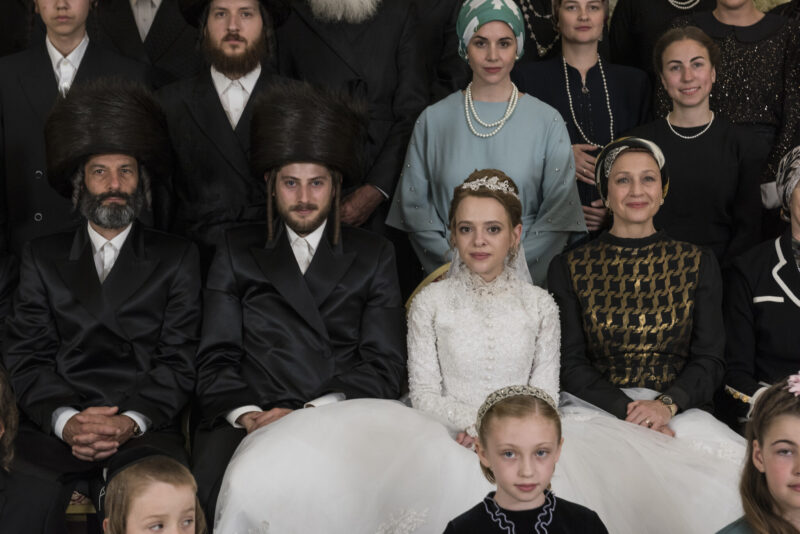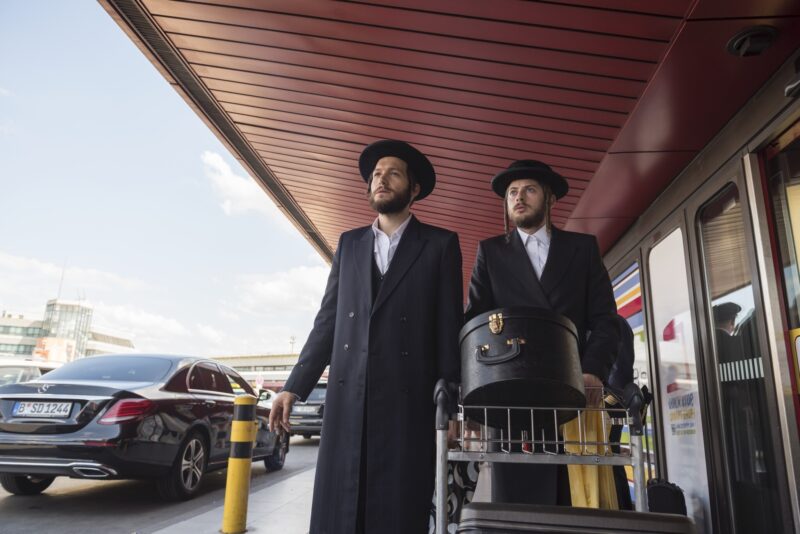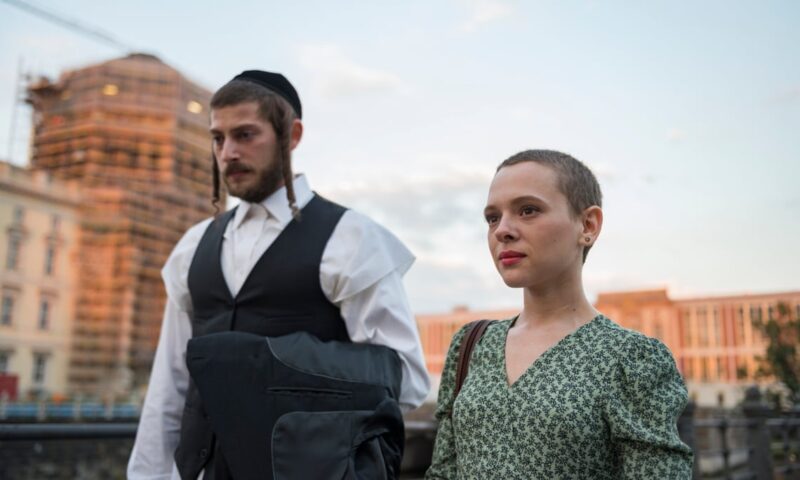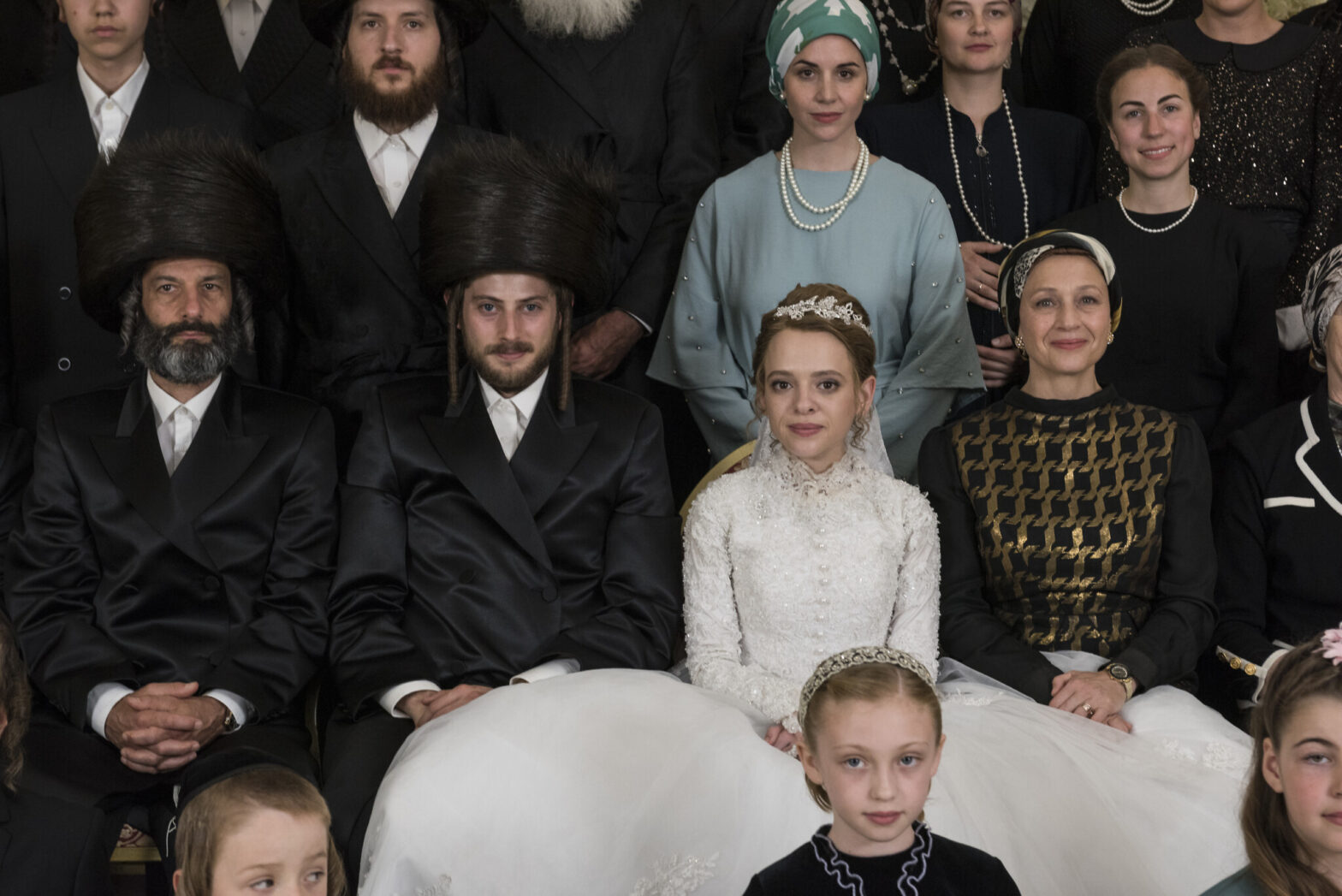Alienated from the insular and regimented ultra-Orthodox Jewish community in New York City in which she was raised, Esther (Esty) Shapiro severs her ties with it, leaves her husband and starts a radically new life in Berlin.
Esty, 19, is the central character in Maria Schrader’s four-part Netflix series, Unorthodox, which is inspired by Deborah Feldman’s memoir, Unorthodox: The Scandalous Rejection Of My Hasidic Roots.
Hailing from the cloistered Satmar sect in the city’s Williamsburg neighborhood, Esty knows she’s not cut from the same cloth as her peers. “I’m different from the other girls,” she says, “but I’m normal.” While Esty is driven by normal desires and aspirations, she does not share all their values and perceptions. In plain language, she does not fit in.
In her closed and exceedingly pious milieu, men study traditional texts and go to work, while women cook, clean and give birth to a succession of babies. The Sabbath and religious holidays are scrupulously observed. Yiddish, sprinkled with the odd English word, is the language of communication. Outsiders, particularly non-Jews, are regarded with a high degree of suspicion and mistrust. Modern fads and fancies are kept at bay. The more things change in secular society, the more they remain the same within the Samars’ strictly designated boundaries, which are demarcated by eruv wires strung along a stretch of utility poles.

As Unorthodox begins, Esty (Shira Haas), newly married, fails to show up at the weekly Sabbath meal, a festive occasion. Esty, a U.S. passport and money in hand, is bound for Germany. “Good luck in Berlin,” says her fixer, an unidentified woman who’s made all her travel arrangements.
“Esty’s gone,” laments Yanky (Amit Rahav), her distraught husband. He understands why she’s absent. “She wasn’t happy.” Period.
Like all Satmar male, he stands out sartorially. Sporting sidelocks, he wears a white shirt open at the neck, a black caftan reminiscent of 17th century Poland and a mink fur hat, the unmistakable “uniform” of haredi Jews.
Having landed in Berlin, Esty heads straight to her estranged mother’s apartment building. She knocks on Leah Mandelbaum’s door, but no one answers, forcing Esty to fend for herself in unfamiliar surroundings.
Schrader, the German director of Unorthodox, understands Esty’s closeted world and uses her knowledge to recreate this universe with remarkable accuracy. The sets convey a distinct sense of place. The cast is well chosen, with the principal actors, especially Haas, turning in convincing performances. Unfolding in English, Yiddish and German, the series flits back and forth between the present and the past, presenting an authentic portrait of the changeless Satmar community, which does not inspire admiration.
Esty, a waif-like figure, wanders into a concert hall in Berlin and watches a diverse group of amateur classical musicians in rehearsal. Having previously taken secret piano lessons, she’s enchanted by their dedication to their craft. Eager to make friends and break out of her isolation, she shyly reaches out to these strangers, a melange of liberal Germans and foreigners, including Muslims. Much to her delight, they respond positively to her overtures.

Esty, in a pivotal scene, accompanies them to a placid lake in Wannsee. Apart from being an upscale suburb of Berlin, Wannsee is stained by the specter of the Holocaust. There, in a white-washed villa in January 1942, major Nazi officials conferred to plot the systemic destruction of European Jews. Esty, the scion of Hungarian Jews scarred by the Holocaust, is unaware of Wannsee’s place in history. It’s left to Robert (Aaron Altaras), one of her acquaintances, to apprise her of its significance.
As she wades into the lake, fully dressed, she removes her wig, a standard adornment of ultra-Orthodox Jewish women, and lets it float on the water. In one symbolic gesture, Esty extricates herself from her Satmar upbringing. Yanky, meanwhile, discovers that Esty is pregnant. A rabbi advises him to search for her in Berlin. Moishe (Jeff Wilbusch), his disreputable cousin, joins him on the trip to Germany.

The episodes in the the ensuing scenes oscillate between Berlin and Williamsburg.
Robert, a kind-hearted soul, unintentionally buys her a ham sandwich, to which she reacts with disgust. Esty applies for a scholarship at a conservatory reserved for students laboring under “extraordinary circumstances.” Esty and Yanky are married in a gender-segregated ceremony marked by fervent prayers, arcane rituals and joyous dancing. Asked why she left Williamsburg, Esty replies, “God expected too much of me, and now I have to find my own path.”
Esty’s first marital night with Yanky is sexually awkward and painful. Their knowledge of sex is so rudimentary as to be embarrassing. And when Yanky’s intrusive mother offers advice about their problems, Esty loses her temper.
Esty’s experience with modernity is so modest that she knows nothing about computer search engines. When she visits a crowded bar, she comes across like an alien in an alternate universe. And when she discovers lipstick, she is pleasantly surprised.

Moishe, having tracked her down, tries to convince Esty to return to Williamsburg. Leah (Alex Reid) promises to be there for her after she gives birth. At her scholarship audition, she sings a song by Schubert as well as a Yiddish song. And in the most poignant scene of the film, Yanky finally confronts Esty, imploring her to come back home with him so they can be a family.
Unorthodox moves along at a brisk pace, penetrating the insularity of Williamsburg and thrusting forward into Berlin, which Esty is free to embrace or reject.
